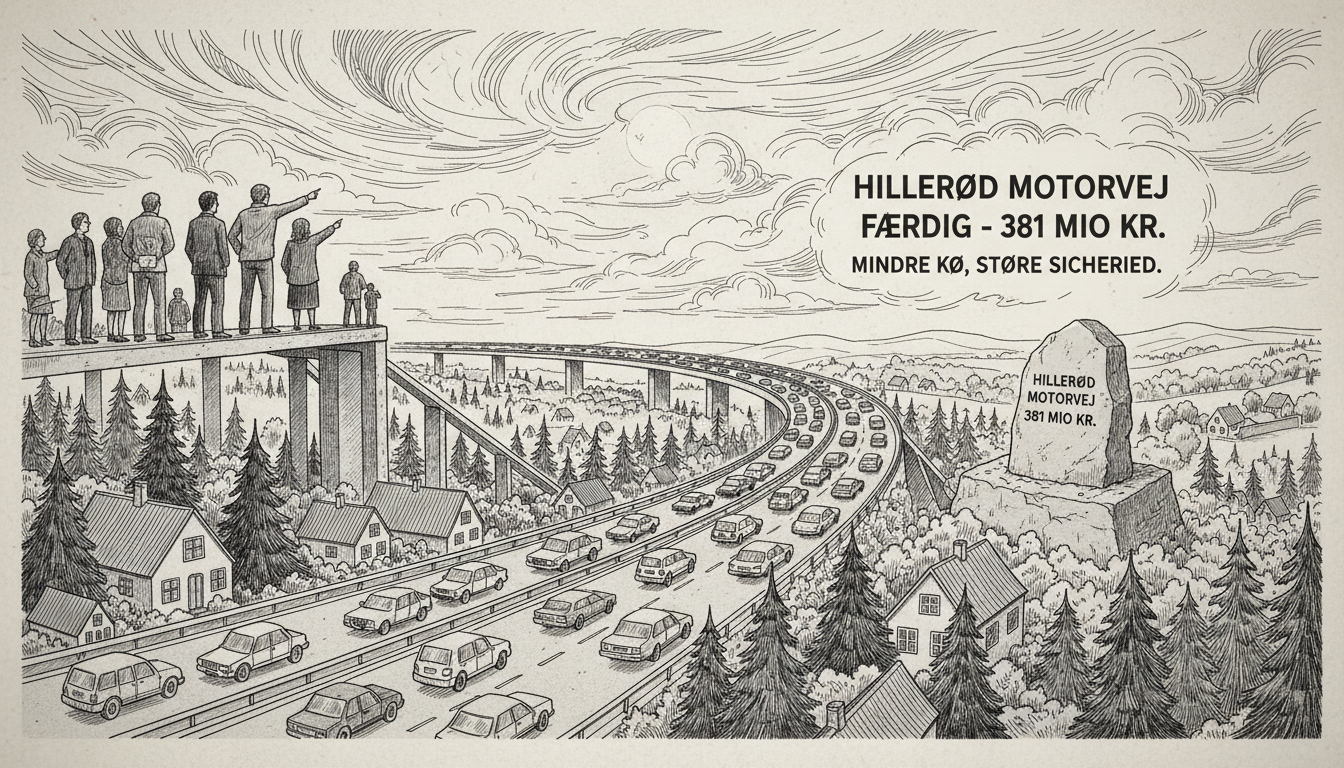The Danish government has committed 381 million kroner to finish construction of the Hillerød Motorway. This funding injection aims to resolve one of North Zealand's most persistent traffic bottlenecks.
Culture Minister Jakob Engel-Schmidt announced the decision alongside Venstre's group chairman Hans Andersen and Hillerød's Social Democratic mayor Kirsten Jensen. The political collaboration across party lines signals broad consensus about addressing the region's infrastructure challenges.
Minister Engel-Schmidt explained the urgency behind the funding decision. "Every single day, people sit in traffic jams on the Hillerød Motorway. Several years ago, authorities decided to expand the highway. That decision was good, but it encountered numerous challenges when project costs exceeded initial estimates."
Official studies reveal the staggering human cost of these delays. Residents in North Zealand and Hillerød collectively waste over 750,000 hours annually sitting in traffic. Engel-Schmidt called this situation unacceptable, noting how it impacts both ordinary families' daily lives and local business operations.
Hillerød's mayor expressed profound relief at the announcement. Kirsten Jensen described the completed motorway as a major municipal priority. "We will gain improved safety when the motorway is finished. We have experienced some terrible accidents because this heavily trafficked stretch hasn't been upgraded to proper motorway standards. I'm genuinely thankful we can now complete the entire highway project."
The funding decision represents a practical solution to a problem that has plagued commuters for years. The Hillerød Motorway expansion project joins numerous infrastructure initiatives across Denmark facing budget overruns, reflecting broader challenges in large-scale public works planning.
North Zealand's traffic congestion issues mirror patterns seen in other growing suburban regions around Copenhagen. As population density increases in these areas, transportation infrastructure often struggles to keep pace with demand. The completed motorway should significantly reduce travel times between Hillerød and the capital region.
Local businesses stand to benefit substantially from improved transportation links. Reduced congestion means more reliable delivery times and easier access for both employees and customers. The economic impact of 750,000 lost hours annually extends far beyond individual frustration, affecting regional productivity and competitiveness.
Safety improvements represent another critical benefit. Converting high-traffic roads to proper motorways typically reduces accident rates through better design, controlled access, and improved signage. For Hillerød residents who have witnessed serious accidents, this aspect may matter as much as time savings.
The cross-party support for this funding suggests infrastructure development remains one area where Danish politicians can find common ground, even amid other political disagreements. This collaborative approach to solving practical problems reflects Denmark's consensus-oriented political culture.
Construction is expected to resume shortly with the new funding secured. Project managers will likely face pressure to complete remaining work efficiently while maintaining quality standards. Local residents will be watching closely for tangible progress after years of delays and frustration.

